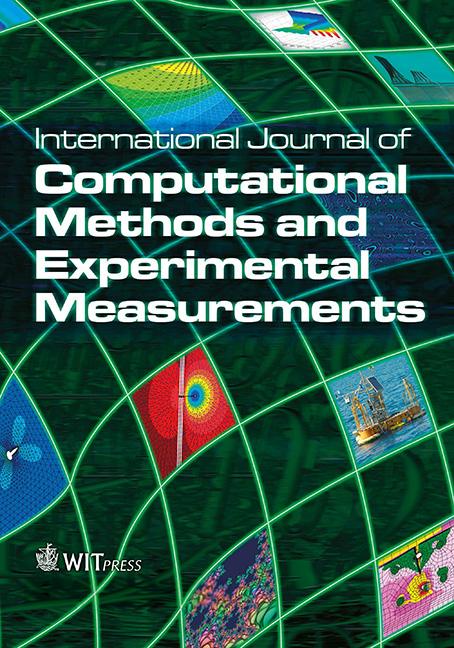COMPUTER-AIDED MODEL OF COLONIC PROPULSIVE ACTIVITY
Price
Free (open access)
Volume
Volume 6 (2018), Issue 4
Pages
6
Page Range
797 - 803
Paper DOI
10.2495/CMEM-V6-N4-797-803
Copyright
WIT Press
Author(s)
O. AL QATRAWI & R. N. MIFTAHOF
Abstract
A biomechanical model and mathematical formulation of the problem of propulsion of a solid non-deformable pellet by an isolated segment of the colon are presented. The organ is modeled as a soft orthotropic cylindrical biological shell. Its wall is reinforced by transversely isotropic muscle fibers of orthogonal type of weaving embedded in a connective tissue stroma. The mechanical properties of the wall are assumed to be nonlinear, deformations are finite. The longitudinal and circular smooth muscle syncitia possesses electrical properties and are under control of a pacemaker, which is represented by the interstitial cell of Cajal. The model describes the dynamics of the generation and propagation of the mechanical waves of contraction–relaxation along the surface of the bioshell and propulsion of the pellet. The governing system of equations has been solved numerically. The combined finite-difference and finite-element method has been used. The results of numerical experiments demonstrate that pendular movements alone provide a normal transit, without mixing though, of the bolus. Non-propagating segmental contractions show small amplitude librations of the pellet without its visible propulsion. Only the coordinated activity of the longitudinal and circular smooth muscle layers in a form of the peristaltic reflex provides physiologically significant simultaneous propulsion and mixing of the intraluminal content.
Keywords
Bolus, colon, Computational biology, gastrointestinal tract




